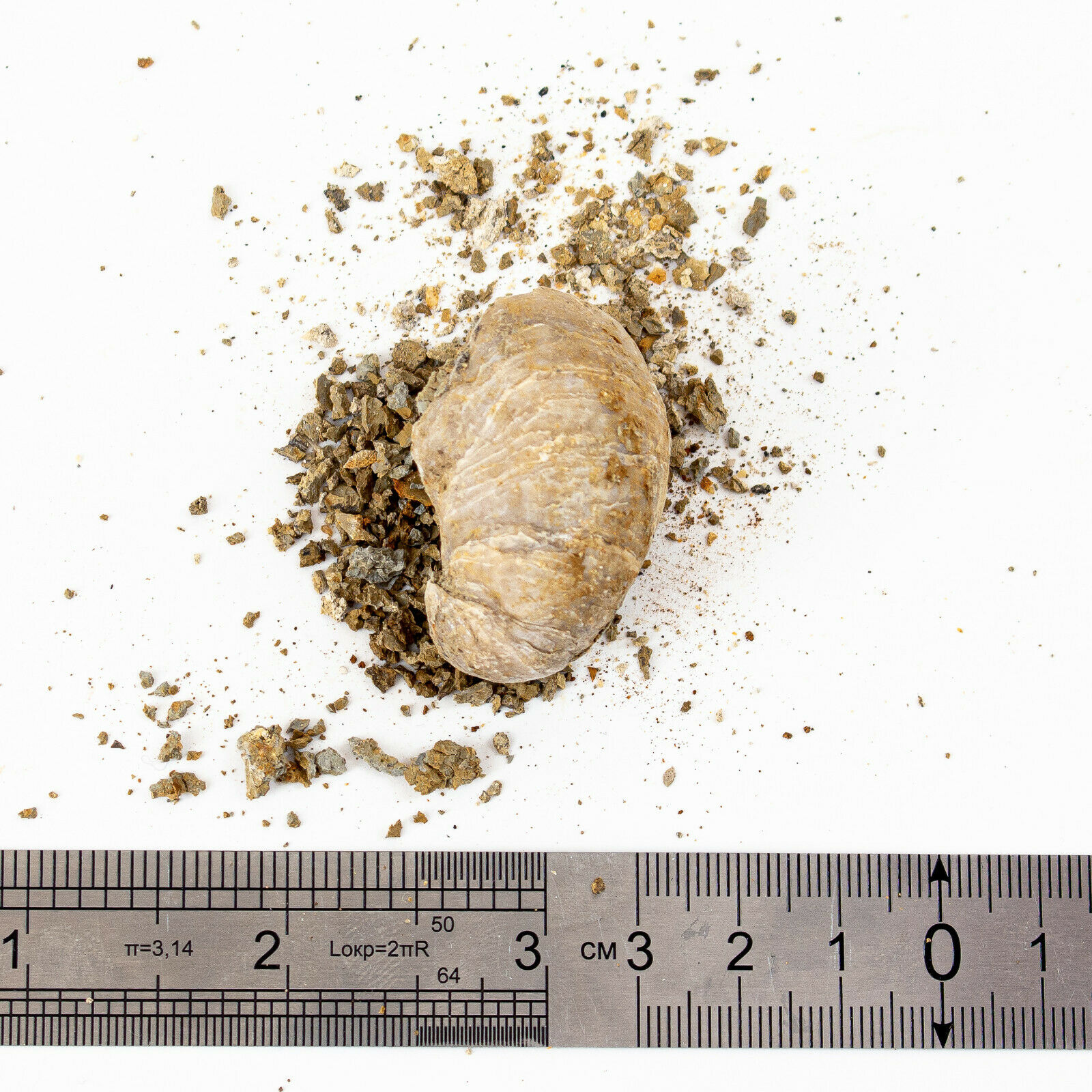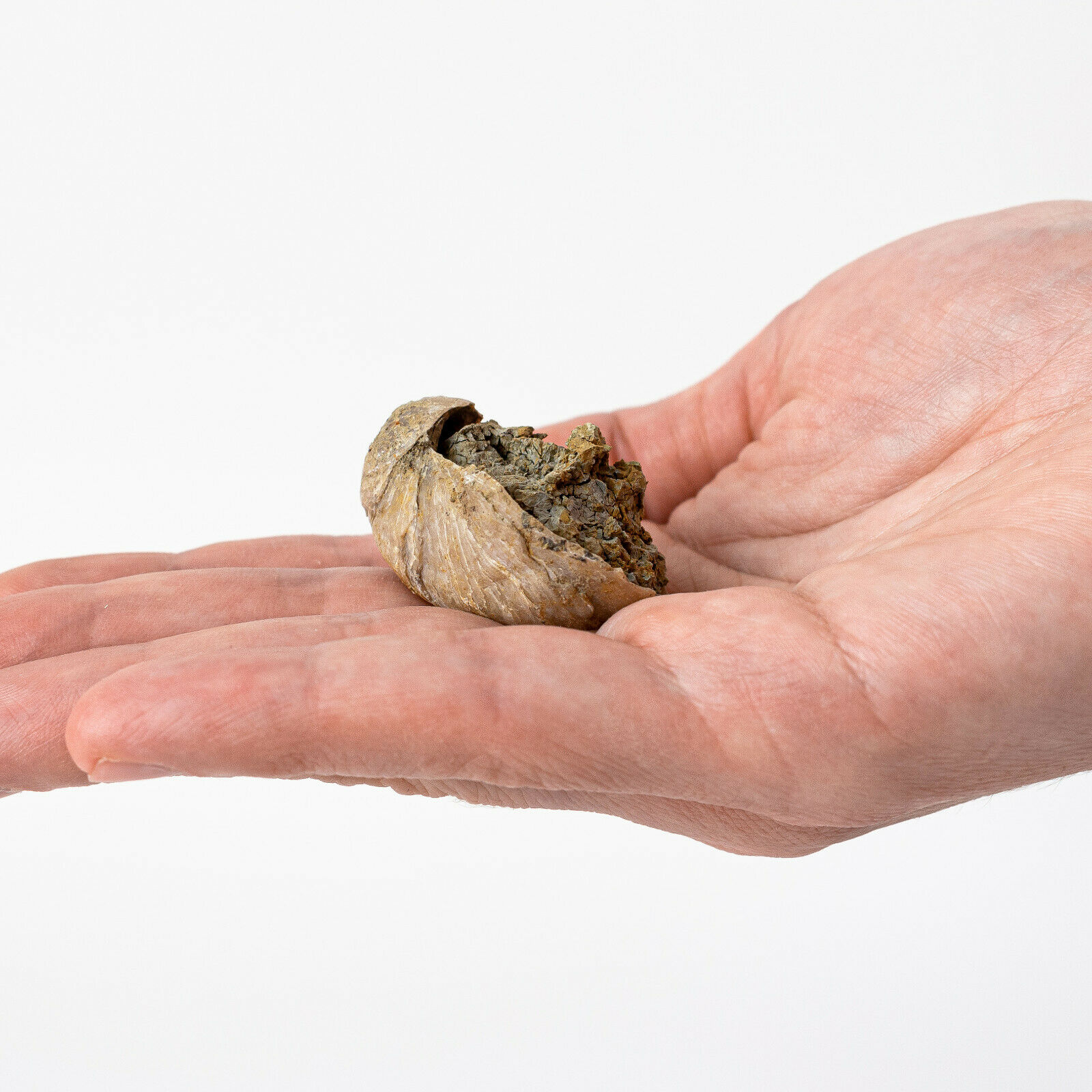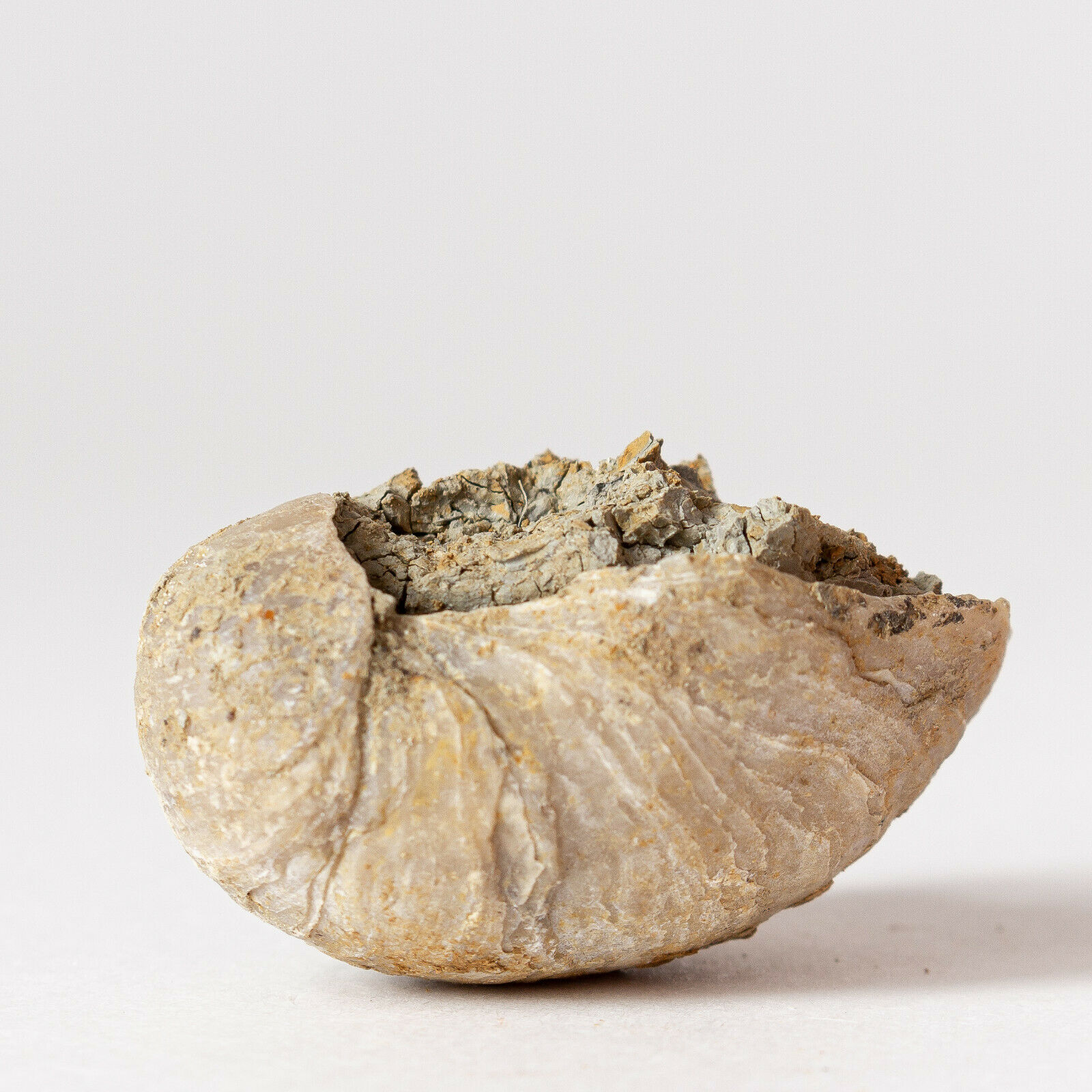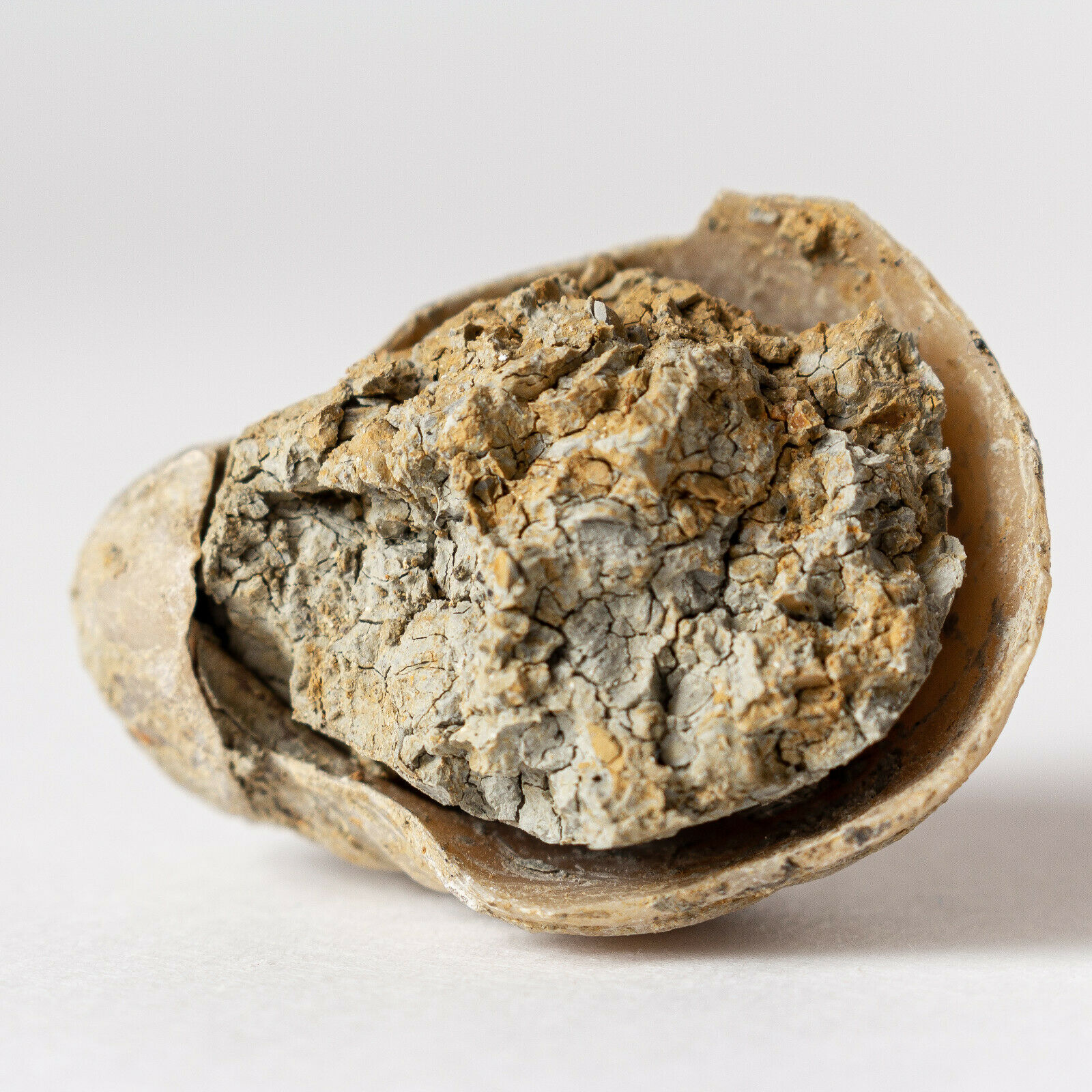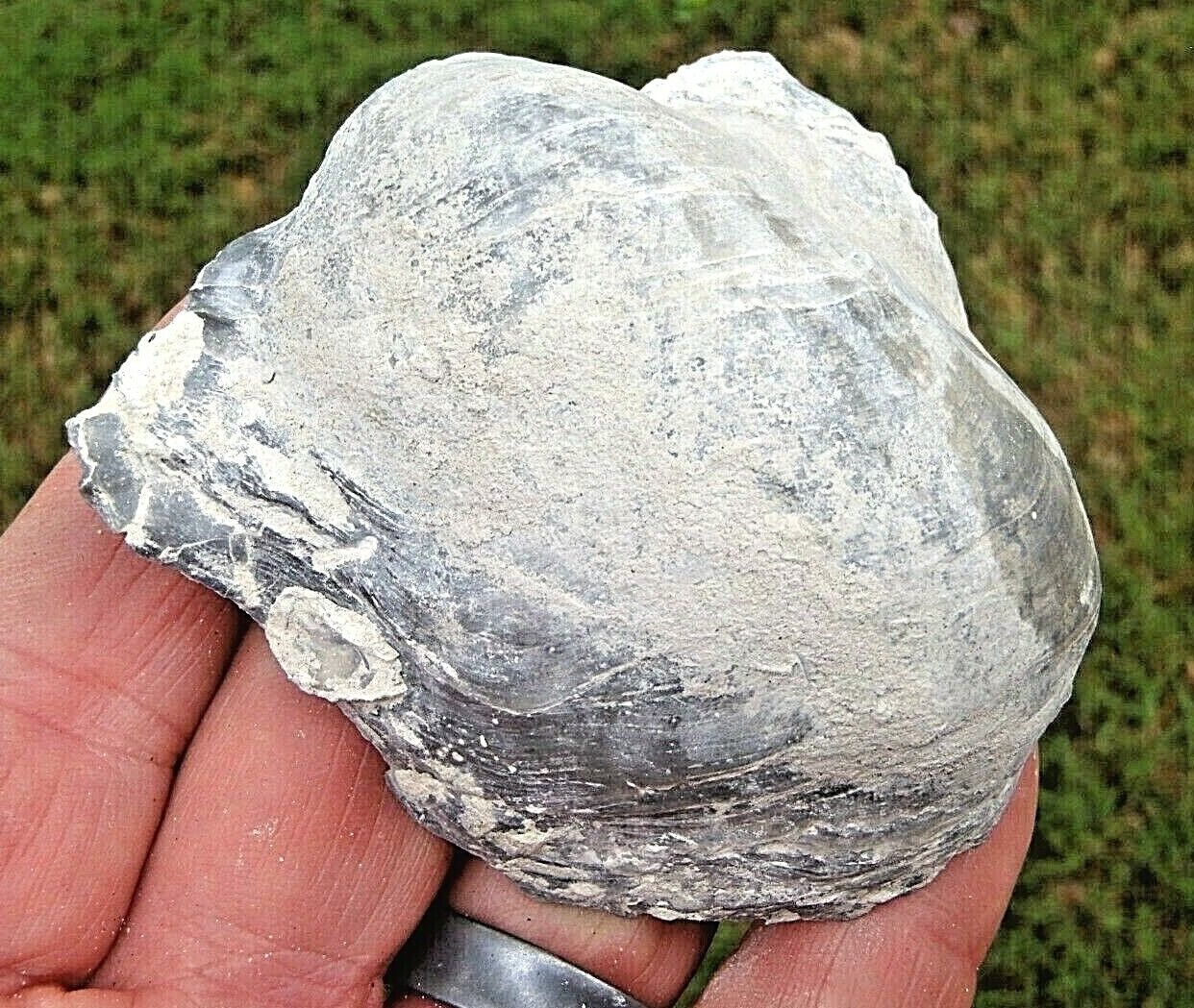-40%
Raw Gryphea Fossil Specimen Rocks Jurassic Devil's toenail Bivalve Fossilien
$ 6.01
- Description
- Size Guide
Description
Gryphea from "Raw fossils" items line.All items in "Raw fossils" are sold in that
condition as it was found. There is no pre-sell
processing (removing dirt, dust, cleaning). Almost all items has fragile parts of damaged lid cemented with clay (Jurassic clay layer). If you want, you can remove it yourself or leave as is. This type of items can be interesting for person who want to study the samples closely as they are found in nature or want to make delicate cleaning himself. Caution - crumble!!!
SIZE:
Approximately 37mm x 27mm x 28mm (1.46" x 1.06" x 1.10").
Weight: 18gr (0.63oz)
QUANTITY:
2 valves, as pictured.
!!!!! COMBINED SHIPPING !!!!!!
Contact me for combined shipping adjustment if you are buying more than 1 item.
ORIGIN:
Central Russia
Gryphaea, common name devil's toenails, is a genus of extinct oysters, marine bivalve mollusks in the family Gryphaeidae.
GEOLOGIC TIME SCALE
Period: Jurassic
Epoch: Middle
Age: Callovian
166.1 ± 4.0 Ma (million years ago) and 163.5 ± 4.0 Ma
SCIENTIFIC CLASSIFICATION
Kingdom: Animalia
Phylum: Mollusca
Class: Bivalvia
Order: Ostreoida
Family: Gryphaeidae
Tribe: †Gryphaeini
Genus: †Gryphaea
These fossils range from the Triassic period to the late Paleogene period, but are mostly restricted to the Triassic and Jurassic. Both periods belong to the era Mesozoic.
These oysters lived on the sea bed in shallow waters, possibly in large colonies. The complete fossils consist of two articulated valves: a larger gnarly-shaped shell (the "toenail") and a smaller, flattened shell, the "lid". The soft parts of the animal occupied the cavity between the two shells, just like modern oysters. The shells also feature prominent growth bands. The larger, curved shell sat within the mud on the sea floor. These shells are sometimes found in fossil plates along with Turritella, clams, and sometimes sharks' teeth and fossilized fish scales. Its distribution is common in areas of both Europe and North America.
DELIVERY
takes FROM 10 days AND UP TO 1,5-2 months. To Australia it takes a month or more.

